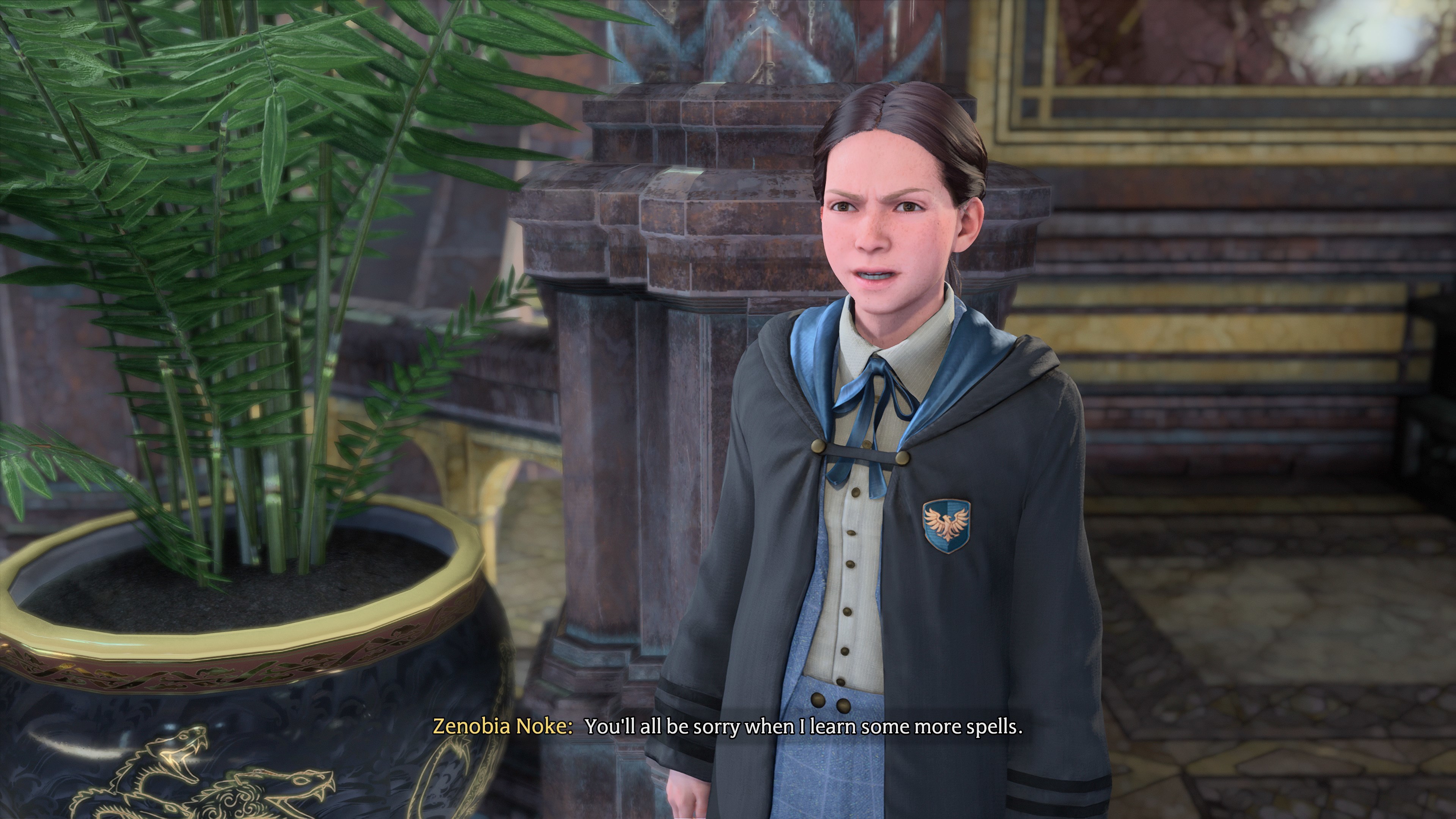Wait, so it plays like Bamham Creed? Well, why wouldn't they use this sort of gameplay for something based on the dullest franchise in the history of movie franchises? Seriously each episode following the boy wizard and his pals from Hogwarts Academy as they fight assorted villains has been indistinguishable from the others. Aside from the gloomy imagery, the series’ only consistency has been its lack of excitement and ineffective use of special effects, all to make magic unmagical, to make action seem inert.
Perhaps the die was cast when Rowling vetoed the idea of Spielberg directing the series; she made sure the series would never be mistaken for a work of art that meant anything to anybody? Just ridiculously profitable cross-promotion for her books. The Harry Potter series might be anti-Christian (or not), but it’s certainly the anti-James Bond series in its refusal of wonder, beauty and excitement. No one wants to face that fact. Now, thankfully, they no longer have to.
>a-at least the books were good though
"No!"
The writing is dreadful; the book was terrible. As I read, I noticed that every time a character went for a walk, the author wrote instead that the character "stretched his legs."
I began marking on the back of an envelope every time that phrase was repeated. I stopped only after I had marked the envelope several dozen times. I was incredulous. Rowling's mind is so governed by cliches and dead metaphors that she has no other style of writing. Later I read a lavish, loving review of Harry Potter by the same Stephen King. He wrote something to the effect of, "If these kids are reading Harry Potter at 11 or 12, then when they get older they will go on to read Stephen King." And he was quite right. He was not being ironic. When you read "Harry Potter" you are, in fact, trained to read Stephen King.
I think the popularity of the series is entirely down to the fact that at a certain point in the 90s traditionalism and racial pride had eventually become
strengst verboten sentiments for middle-class White people. Rowling's mythos came at just the right time for middle-class English folks (and later the White middle class generally, globally) to be able to scratch a cosiness itch and retreat to an echo of a proud England long gone or fast disappearing, with a midwit "ironic" excuse because of the kid's book/fantasy aspect (at a time when the "irony" excuse, though already on its way out by the mid-90s, was still lingeringly valid). It was a form of silent protest that didn't know what it was doing, because if it had articulated what it was doing it would have horrified itself. Similar syndrome on a lower level happens with the popularity of Sherlock Holmes, or period dramas, etc. It's nostalgia for a time when the English (and more broadly, White people) had power in their own countries, and could quietly bask in their collective power and superiority.
As to the popularity in other countries of course that's down to the fond illusion that many foreigners still hold, that England is still somewhat as the traditional image of it has been, instead of a shithole infested with shitskins, which is what it now is.
As an added hook, the series had a sort of "Hitler" equivalent, so the midwits felt they were on familiar ground, with the right attitude having been drummed into their soft heads all their lives by media, Hollywood, etc. - the sense of unity against a supposed absolute evil, that characterized (or is supposed to have characterized) England during WW2, could be indulged in, in a fantasy context, where it can't be indulged in in real life (although the government, revoltingly, tried to hearken back to the Blitz sentiment during the COVID fiasco).
The series has absolutely zero value otherwise, fantasy has been far better done by other writers. (It reminds me of those occasional club-footed attempts by "serious" authors to do s-f.)
And yeah, the films are dull as dishwater.





























